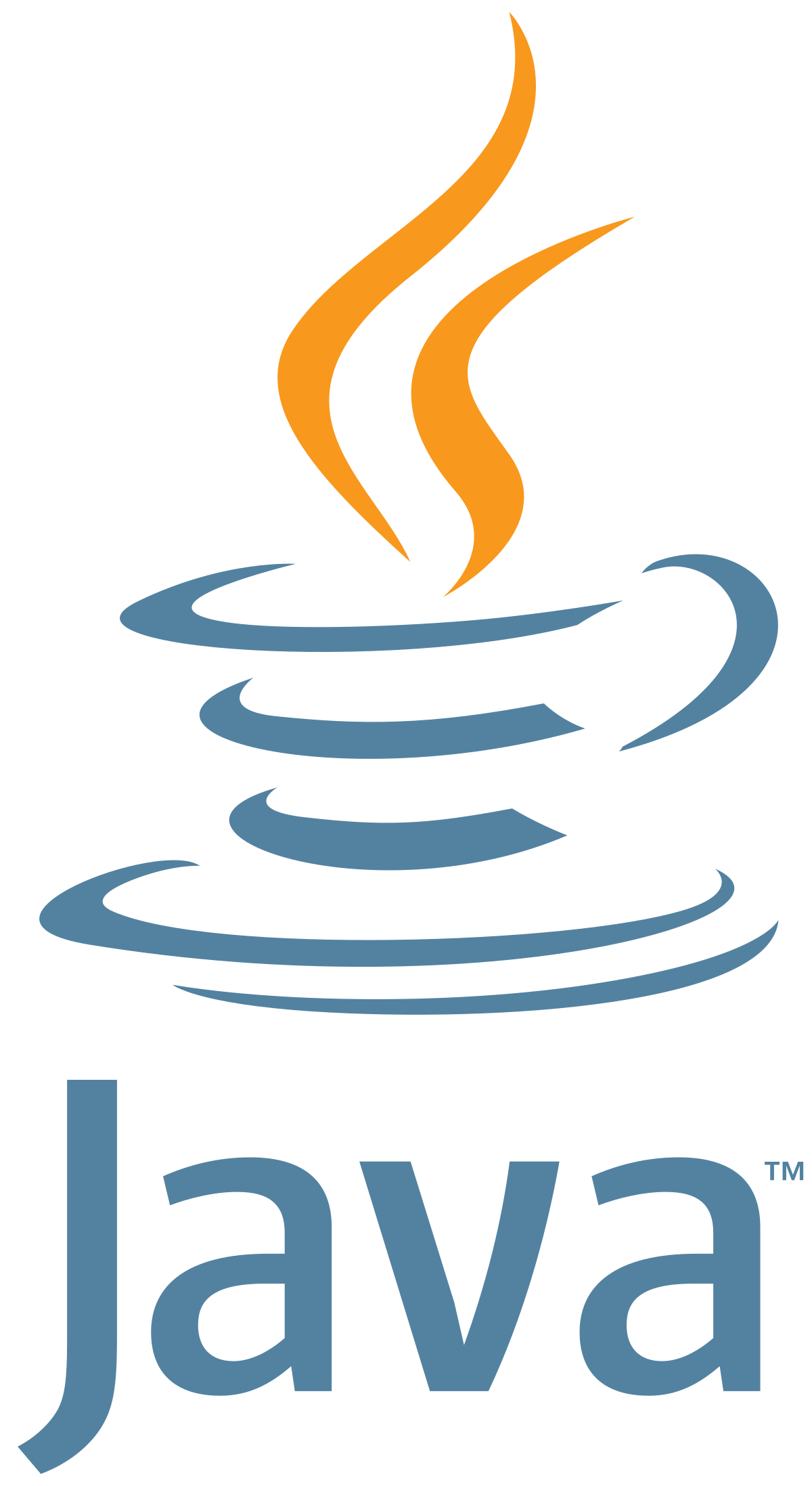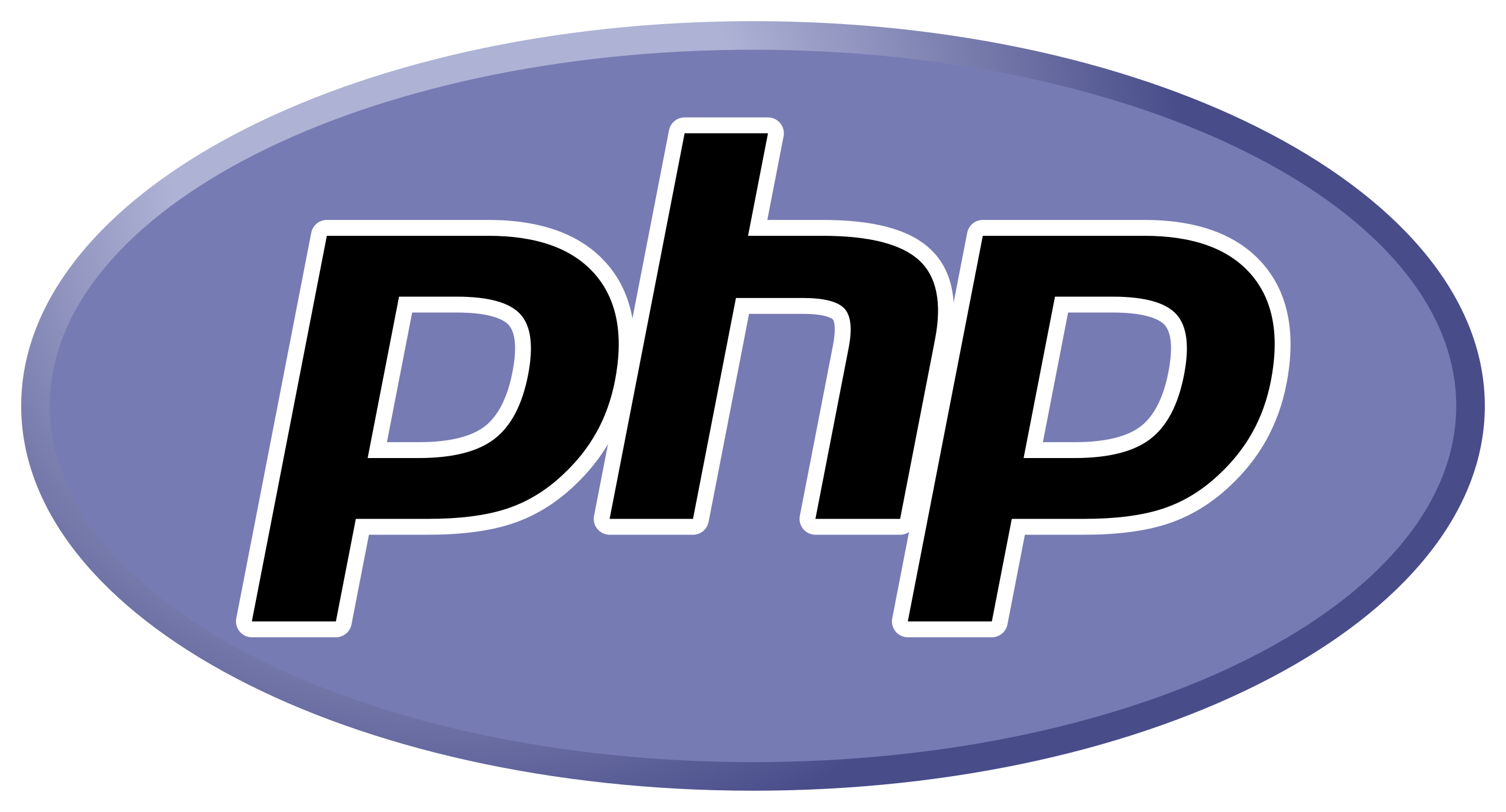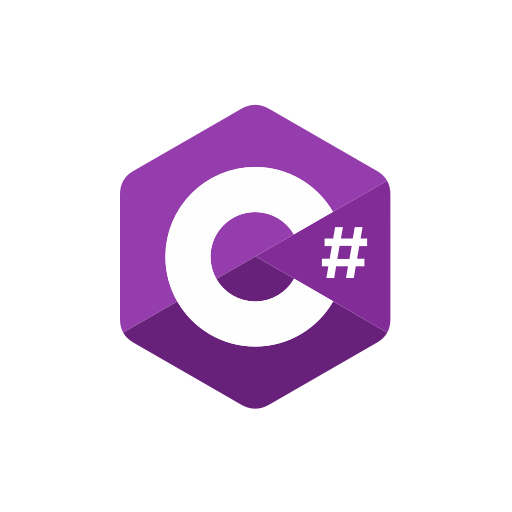SHARE
Top 10 Web Programming Languages for 2026

Contents
Contents
Introduction
Did you know the world’s first programming language was created way back in 1883? Since then, hundreds of languages have evolved, each with its own unique syntax, purpose, and features.
The TIOBE Index ranks the popularity of 100 programming languages on a monthly basis. We have combined that with web programming language technology preferences found on StackOverflow to compile our list of the best programming languages below. Here’s our list of the top 10 web programming languages for 2024 – all of which you will find in the TIOBE Index or within software developer preferences pulled from StackOverflow. Each programming language listed here would be considered a top pick for web developers and a great choice to learn if starting a career in web development.
Ruby

- Type: General-purpose, object-oriented, open-source
- Suitable for: Desktop applications, web applications, static websites, data processing services, automation tools
- Cost: Free
- Websites: https://www.ruby-lang.org/en/about/ and https://rubyonrails.org/
Ruby is a popular programming language since it is practical and balances functional and imperative programming. In web development, you can often find it used within Ruby on Rails, which is a well-established web framework. As an open-source language, anyone can freely use and modify Ruby for their needs. It is also an object-oriented programming (OOP) language, so its code can be broken down into reusable objects for other applications.
Another advantage of Ruby is that it can be extended with Ruby on Rails, a full-stack framework to build front-end or back-end web apps. Rails simplifies app development with pre-written Ruby code. It is also very flexible since it uses the Model-View-Controller (MVC) architectural pattern, and efficient since it incorporates the Don’t Repeat Yourself (DRY) concept.
Ruby is a purely object-oriented programming language. By that, we mean that literally, everything in Ruby is an object, including numbers, which typically have an alternative data structure. Additionally, Ruby is built to be a pleasure to write code with. At times, it sacrifices other programming language qualities like efficiency in order to maximize the development experience. For this reason, many developers love writing Ruby.
Java

- Type: Multi-platform, object-oriented, network-centric, open-source
- Suitable for: Web applications, enterprise software, mobile apps, server-side technologies, big data applications, games, Internet of Things (IoT) devices
- Cost: Free
- Website: https://www.java.com/en/
Java is ranked #3 in TIOBE’s November 2022 list of programming languages. One reason for Java’s popularity is its underlying “write once and run anywhere” (WORA) principle that allows developers to develop code on one system and run it on any other Java-enabled system without making adjustments. Java remains popular, especially within enterprise web applications. It can commonly be found used in tandem with the Spring framework, and it is the inspiration for Kotlin, the programming language of choice for Android.
As an OOP language, Java creates programs with clear, easy-to-understand structures. Its code can be reused, speeding up development and lowering development costs. It also provides numerous built-in libraries and functions to easily develop many applications.
JavaScript (JS)

- Type: General-purpose
- Suitable for: Interactive web pages, games, mobile apps
- Cost: Free
- Websites: https://www.javascript.com/
Often known as a “programming language for the web”, JavaScript is used to develop dynamic web pages and applications with animated graphics, drop-down menus, dynamic background colors, and other features. JavaScript can format HTML elements on web pages while maintaining user interaction with a web page content (which CSS cannot do on its own).
JavaScript is versatile enough for both client-side and server-side development (with the Node.js cross-platform server environment). It is also easy to learn and implement and runs quickly since it executes scripts directly within the web browser.
Today’s web applications often contain complex user interfaces or complex front-end user interactions. Because of this, most web developers are intimately familiar with JavaScript. A lot of great frameworks have been established over the past years to make the management of complex front-end web applications possible. Some favorite libraries to use with JavaScript including React, Vue, and Angular. With each of these, you can build dedicated front-end experiences for web users. JavaScript is arguably the most popular programming language that any web developer should have familiarity with.
TypeScript (TS)

- Type: General-purpose, client-side, open-source
- Suitable for: Building web interfaces and interactions
- Cost: Free
- Website: https://www.typescriptlang.org/
TypeScript is somewhat of a new programming language, but it has an interesting future within web development, and it will be curious to see whether it makes an impact on features built into JavaScript. TypeScript is growing quickly as a favored web language. It is a superset of JavaScript that allows for strong typing. This adds all of the traditional benefits of strong typing to JavaScript. Namely, catching type errors before releasing your code and finding them in the wild. TypeScript is used anywhere that you find JavaScript, including server-side Node.js web frameworks and front-end UI frameworks. Many new libraries and services are written in or support TypeScript, and it turns out JavaScript developers like strong type systems after all!
PHP

- Type: General-purpose, open-source, server-side
- Suitable for: Web servers, graphical user interfaces (GUIs), desktop applications
- Cost: Free
- Websites: https://www.php.net/
PHP is one of the most popular languages to develop web servers, for command-line scripting, to generate dynamic page content, to send and receive cookies. This platform-independent language runs on all major operating systems and supports many databases. Unlike many other server-side scripting languages, PHP is easy to learn and there are many PHP programmers though out the world. It also provides developers the flexibility to choose procedural programming, OOP, or both. PHP has been one of the most popular programming languages on the web for a long time, and it has remained modern due to the development of popular frameworks such as Laravel. You can never go wrong learning PHP as a web developer, and software developers often interact with it as a backend programming language.
Today, PHP is included in the tech stacks for many popular websites, including:
- Etsy
- Tumblr
- Skillshare
- Slack
- Spotify
- WordPress
WordPress alone, being a stable CMS built on top of PHP, accounts for a large portion of websites built today. For the reasons listed here, we believe PHP to be a top programming language for web developers in 2024.
C#

- Type: Object-oriented, component-oriented, type-safe
- Suitable for: Desktop applications, mobile apps, websites, games, enterprise software, cloud-based microservices
- Cost: Free
- Website: https://dotnet.microsoft.com/en-us/languages/csharp
C# is one of the five top programming languages in the TIOBE November 2022 list. This general-purpose language was developed by Microsoft in 2000. C# programs usually run on the Windows .NET framework, although the language can also be applied to other open-source platforms.
C# is very versatile and flexible – ideal for creating software components, games, dynamic websites, and Windows applications. It is also easy to learn, especially for programmers already familiar with C, C++, Java, and JavaScript. It is also simple and efficient and creates scalable and easy-to-maintain programs.
C# at times gets overseen. It was originally released as a closed-source programming language for windows only. If you wanted to run it on a server, you needed a Microsoft operating system. Making C# closed source and locked to Windows was, in our opinion, a mistake. It was originally created in 2000 and contains many patterns, including an MVC architecture, that many programming languages or web frameworks have taken inspiration. Since C# became open source and cross-platform it has grown even further and is a modern programming language with old roots for the web.
C++

- Type: Cross-platform, object-oriented
- Suitable for: Operating systems, GUIs, embedded systems, search engines, VR applications, games, IoT devices, databases
- Cost: Free
- Websites: https://isocpp.org/
C++ is a popular choice for developing high-performance, real-world applications, especially large applications running on limited resources. It is also great for building software that can reliably perform critical tasks. While it might not be the first go-to programming language for simple web development, many of the most complicated web-based software companies use it in some fashion to maximize performance. Server-side web development that gets extremely complex and performance-oriented many times looks to C++ for resolution.
Thanks to its versatility, a huge number of real-world applications are written in C++, including applications used in:
- Financial services
- Healthcare
- Machine learning
- Scientific research
- Airplane software
- Telecommunications
- Movie production (e.g., special effects)
Since C++ is an OOP language, its programs have a clear structure. Moreover, a lot of code can be reused, reducing development time and costs. The language is also portable so its applications can be adapted to multiple platforms.
Python

- Type: General-purpose, object-oriented, high-level, open-source
- Suitable for: Websites, data analytics, automation, machine learning applications, software testing
- Cost: Free
- Websites: https://www.python.org/doc/essays/blurb/
Python is the reigning king of programming languages, ranked #1 on the TIOBE November 2022 list. Its versatility, ease of use, and program modularity all account for its immense popularity.
Python programs require no compiling, ensuring a fast edit-test-debug cycle. Python also provides built-in data structures, dynamic typing, and dynamic binding to speed up application development. The language is easy to learn and read, making it a perfect choice for programming beginners.
For all these reasons, many well-known organizations use Python, including:
- Mozilla
- Netflix
- Uber
- Microsoft
Because Python is so popular in data science, machine learning, and artificial intelligence, it has a lot of current interest and future potential among software companies. This makes it a great language to learn in 2024. On the web, you will often find Python served under a Flask API micro service or within Django, a full-fledged web development framework.
Structured Query Language (SQL)

- Type: Database query language, cross-platform
- Suitable for: Communicating with databases
- Cost: Open source and proprietary RDBs built around SQL are available
Developed in the 1970s, Structured Query Language (SQL) is a popular language to communicate with databases. SQL statements are commonly used to retrieve data from a database, insert or update records in a database, and delete records from a database. Many relational databases use SQL, including MySQL, PostgreSQL, Oracle, Sybase, and Microsoft SQL Server.
SQL has deemed the standard language for communicating with relational databases by the American National Standards Institute (ANSI) and the International Organization for Standardization (ISO).
When it comes to back-end development and data analytics, it is almost impossible not to encounter SQL-based databases. Even alternatives to SQL are dubbed “No-SQL”, showing the mentality that SQL is still the standard for backend databases for web development.
It is amazing to think about how fast technology progresses and how old SQL is. Throughout all of the changes in software development and web development over the years, SQL still reigns as the primary database programming language.
Perl
![]()
- Type: General-purpose, open-source
- Suitable for: Websites, web apps, GUIs
- Cost: Free
- Website: https://www.perl.org/
Perl is a powerful, adaptable, and stable cross-platform language. Originally developed for text manipulation, it is now used for numerous other applications, including:
- CGI programming on the web
- Automating system administration
- GUI development
- Network programming
Perl supports most operating systems and third-party databases and works with many markup languages, including HTML and XML. It is highly extensible with over 20K modules available in the CPAN (Comprehensive Perl Archive Network). All these features, in addition to Unicode support and simple OOP syntax, contribute to its popularity.
Conclusion
It is worth calling out that Hypertext Markup Language, or HTML, and CSS are not included in the list above. Yes, these are computer languages you will have to learn to be halfway decent at custom web development. And, if you are new to web development, you should probably start with HTML, CSS, and JavaScript so that you understand the basics before moving on to more complex languages for the web.
All of the popular programming languages above are amazing for starting a career in web development or software development. Need help creating programs in Ruby, JavaScript, TypeScript, PHP, Python, SQL, or another programming language? Flatirons can help! Contact us if you are looking for a team of specialists to build high-performance, scalable applications for your organization.
Comprehensive Web Development Services
Flatirons Development creates custom web development solutions tailored to your business needs.
Get the CEO's Take
Handpicked tech insights and trends from our CEO.
Comprehensive Web Development Services
Flatirons Development creates custom web development solutions tailored to your business needs.
Get the CEO's Take
Handpicked tech insights and trends from our CEO.

Secure Mobile App Development: Prioritizing Data Protection
Flatirons Development
Oct 22, 2025
What is Data Ingestion? Definition, Types, and Best Practices for Efficient Data Processing
Flatirons Development
Oct 16, 2025
Enterprise Computing: Transforming Business Operations
Flatirons Development
Oct 09, 2025
Explore the Top Embedded Systems Examples of Today
Flatirons Development
Oct 04, 2025
Best Manual Testing Tools to Boost Your Software Quality
Flatirons Development
Sep 28, 2025
Digital Product Development: Enhance Your Business Offerings
Flatirons Development
Sep 12, 2025
Secure Mobile App Development: Prioritizing Data Protection
Flatirons Development
Oct 22, 2025
What is Data Ingestion? Definition, Types, and Best Practices for Efficient Data Processing
Flatirons Development
Oct 16, 2025
Enterprise Computing: Transforming Business Operations
Flatirons Development
Oct 09, 2025
Secure Mobile App Development: Prioritizing Data Protection
Flatirons Development
Oct 22, 2025
What is Data Ingestion? Definition, Types, and Best Practices for Efficient Data Processing
Flatirons Development
Oct 16, 2025
Enterprise Computing: Transforming Business Operations
Flatirons Development
Oct 09, 2025
Secure Mobile App Development: Prioritizing Data Protection
Flatirons Development
Oct 22, 2025
What is Data Ingestion? Definition, Types, and Best Practices for Efficient Data Processing
Flatirons Development
Oct 16, 2025
Enterprise Computing: Transforming Business Operations
Flatirons Development
Oct 09, 2025